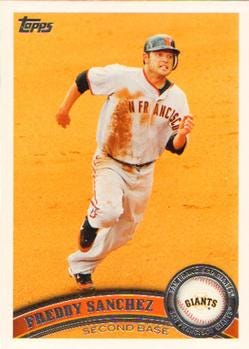Ballot 32: Freddy Sanchez

Freddy Sanchez
Played 10 years for three different teams
Three-time All-Star with .297 lifetime average and 1,012 hits. 15.8 WAR, 4.8 WAA
Pro argument: Won a batting title!
Con argument: No, that's not much of an argument.
Deserves to be in Hall?: No
Will get elected this year?: No
Will ever get elected?: No
Freddy Sanchez is still just 38 years old. He has to …


